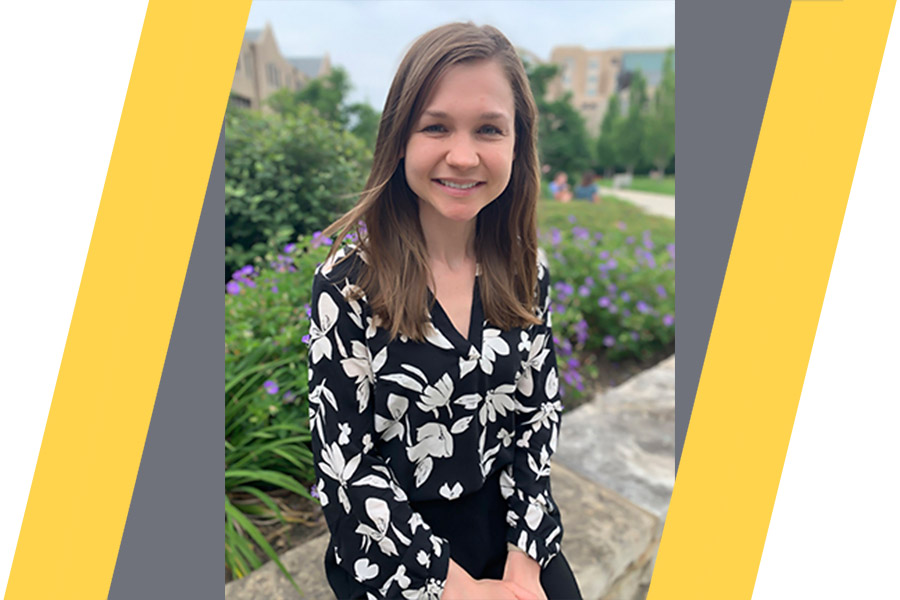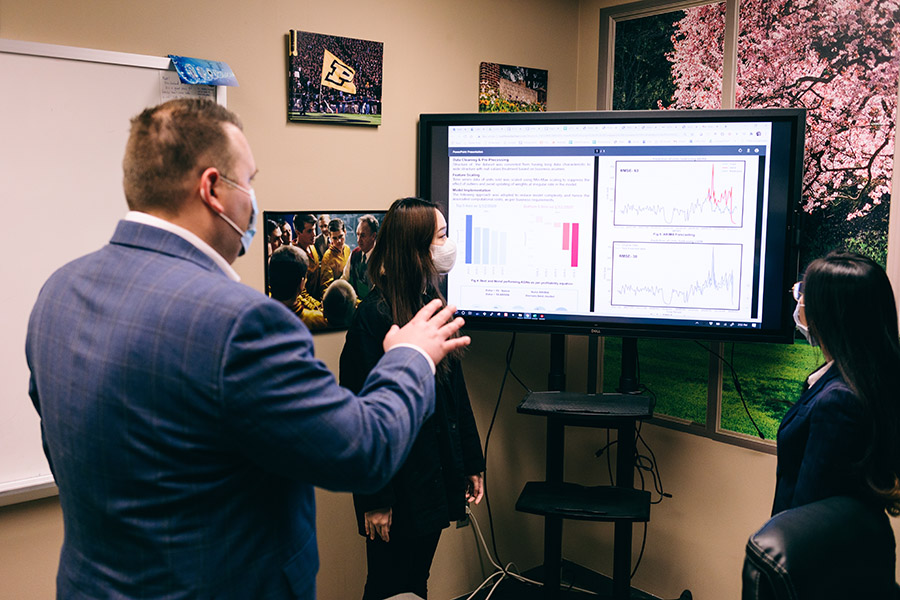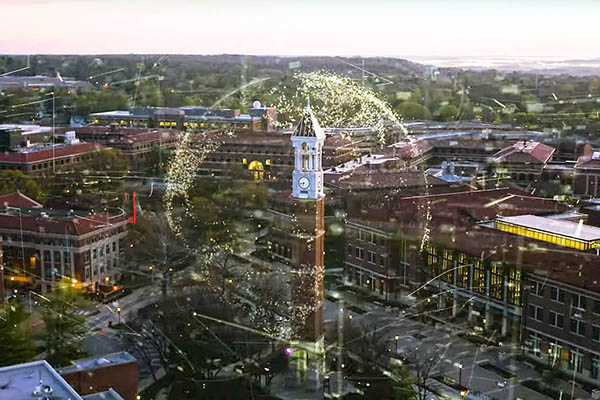
Fast Start - A way for rural students to say ‘thank you’ to parents
Incoming Boilermaker William “Steven” Herrell began his marketing studies in the Krannert School of Management this fall. Thanks to Purdue University’s innovative Fast Start program, Herrell had a head start on his classmates.
First hearing about Fast Start through his Miami County 4-H Extension office, Herrell took five free online courses and passed the corresponding College Level Examination Program (CLEP) exams in spring 2020. Now, that time and effort has translated into extra tuition savings when he arrived at Purdue in August.
“I view coming to Purdue through Fast Start as a way to say ‘thank you’ to my parents for raising me and supporting me all these years,” says Herrell, a 2021 North Miami High School graduate who lives in the small town of Macy. “I’ve learned that college debt is important not to have. And Fast Start will be a way to potentially avoid that as I study at Purdue.”
Launched in February 2020, Purdue Fast Start is a partnership with ModernStates.org, a philanthropy dedicated to making a college degree more affordable and accessible. Through Fast Start, Purdue assures admission to students from Indiana who pass a minimum of five CLEP exams and meet the university’s standard admissions requirements.
Purdue 4-H Extension leaders are actively promoting participation in the Fast Start program during this summer’s county fair season across the state of Indiana.
A $1 million gift to Purdue from Steve and Maureen Sherry Klinsky covers the cost of 10,000 CLEP exam fees for Indiana students. Maureen Sherry Klinsky is a trustee of Modern States.
“Fast Start is available to all residents of Indiana but is especially beneficial to students in rural parts of the state, those enrolled in schools that aren’t able to offer the full menu of Advanced Placement courses, and those for whom a college education is less affordable,” says Kris Wong Davis, Purdue vice provost for enrollment management.
“We view Fast Start as another key piece of our ongoing commitment to affordability and accessibility and the program’s assured admission to Purdue for students in the state who successfully complete these courses,” she says.
Passing five CLEP exams, the equivalent of an entire semester, can save students that time in school and nearly $11,000 in Purdue tuition and expenses. Complete 10 CLEPs, or a year of college courses, and the time and financial savings nearly doubles. As another plus, Fast Start students can graduate and enter the workforce sooner than their peers.
Fast Start is designed for Indiana high school students who may not have had access to these courses to learn the material as well as the test fee per course. The program guides students through taking courses and tests, and navigating admittance to Purdue. And students can access Purdue alumni and friends for mentoring if desired.
As Purdue’s inaugural Fast Start students, Herrell and twin sisters Jenelle and Sydney Ward of rural Howard County also became the first Klinsky Scholars when they arrived on the university’s campus in August.
During his quarantine in spring 2020 after being exposed to the coronavirus, Herrell registered for five courses in history and sociology. Taking a Fast Start class each week, he completed all five in six weeks, passed the CLEP exams and gained credit hours to enter Purdue as either a second-semester freshman or even a sophomore with his AP classes.
“We’re excited about the opportunities Fast Start will create for high school students currently participating in this unique program by a Big Ten university that has gone a decade without raising tuition and helping nearly 60% of our students graduate debt-free,” says Jason Henderson, director of Purdue Extension and senior associate dean of the College of Agriculture.
Less than 30% of rural residents age 25 and older have an associate degree or higher, national statistics show, compared with more than 43% of those living in larger cities. And research by Georgetown University’s Center on Education and the Workforce shows two-thirds of all jobs and 80% of all “good” jobs (those paying a median wage of $65,000) demand a postsecondary degree.
With 200,000 registered users, ModernStates.org is the largest “free college for credit” program in the nation. Students can access the expansive Modern States library of online courses, taught by top college professors, at no cost.
Administered by the College Board, CLEP exams can help students gain credit for up to 30 hours of general education courses, or a full year of college credit.




